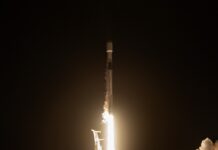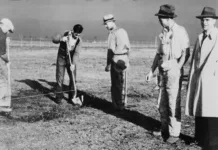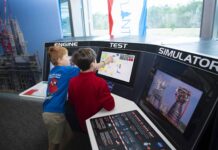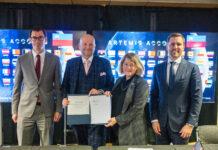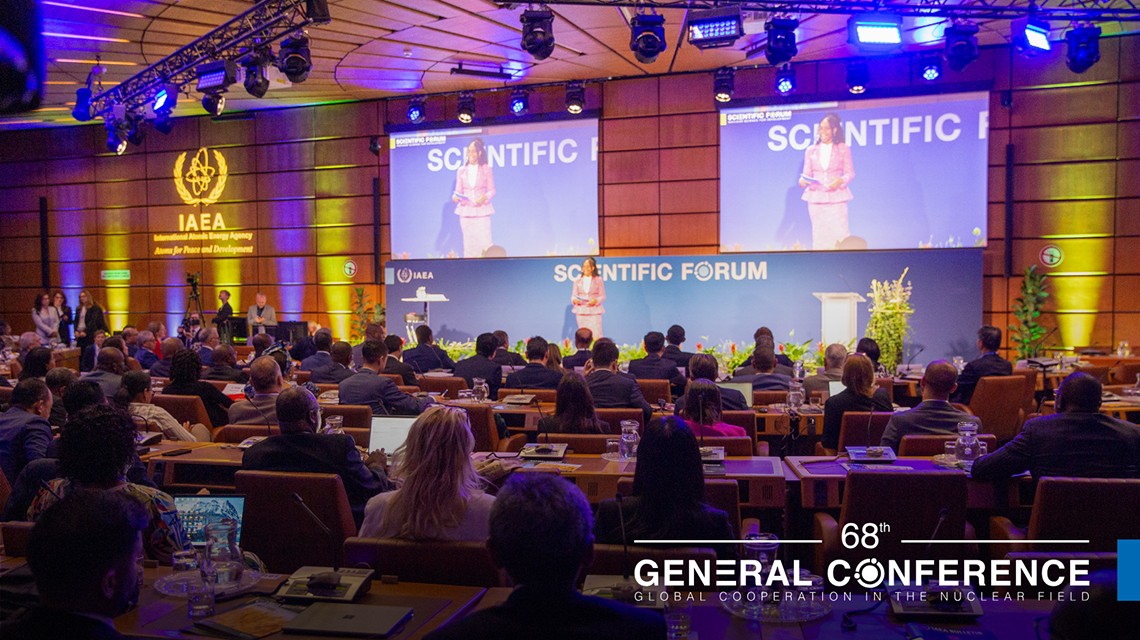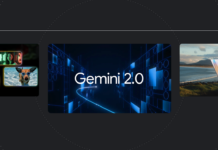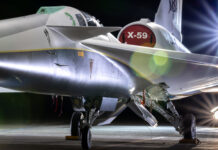The 10th Anniversary of the IAEA ICERR Initiative: Achievements and Opportunities
The event commemorating the 10th Anniversary of the International Atomic Energy Agency (IAEA) International Centres based on Research Reactors (ICERR) Initiative was a significant milestone. Organized by the Republic of Korea, this event underscored the re-designation of the Korea Atomic Energy Research Institute (KAERI) as an ICERR in 2024. The ICERR scheme, now a decade old, has been instrumental in advancing education, training, and joint research and development projects. Currently, seven Member States have research reactors and associated facilities designated as ICERRs, serving as pivotal centers for collaborative scientific endeavors.
Atoms4Food & Gender Mainstreaming
Italy and Women in Nuclear – IAEA organized an insightful event focusing on the Atoms4Food initiative. This session highlighted the integral role of gender equality in achieving food safety and security, particularly within the framework of the IAEA and the UN Food and Agriculture Organization’s Atoms4Food program. The initiative aims to harness nuclear science to improve food quality and production while ensuring equitable participation of women in these scientific fields.
Working Together to Ensure and Implement Nuclear and Radiological Safety, Security and Safeguards in Africa
The Republic of Ghana hosted an event to review the collaborative efforts and progress made by the Forum of Nuclear Regulatory Bodies in Africa (FNRBA), the African Regional Co-operative Agreement for Research, Development, and Training Related to Nuclear Science and Technology (AFRA), and the African Commission on Nuclear Energy (AFCONE). This session focused on the development of infrastructure necessary for ensuring nuclear and radiological safety, security, and safeguards across the African continent.
Kazakhstan’s Experience in Developing Radiopharmaceutical Production Technologies and Nuclear Medicine Methods
Kazakhstan presented its advancements in radiopharmaceutical production and nuclear medicine at an event organized by the Institute of Nuclear Physics. The discussion emphasized the development of radioisotopes and radiopharmaceuticals and their application in radionuclide diagnostics and treatments. This progress was made possible through collaboration with the IAEA’s technical cooperation program, enhancing Kazakhstan’s medical capabilities significantly.
Advances in HEU Minimization
Norway hosted a side event that reviewed the international efforts in minimizing highly enriched uranium (HEU) over the past six years since the last International Symposium on HEU Minimization in 2018. The event assessed the successes achieved, highlighted recent accomplishments, and explored ongoing initiatives aimed at further reducing the use of HEU in various applications, thus enhancing global nuclear security.
Alpha-emitting Radiopharmaceuticals as an Effective Treatment for Metastatic Cancer: Clinical Trial and Its Applications in Society
Japan led a workshop focused on the use of alpha-emitting radionuclides like Ac-225 and At-211 in nuclear medicine therapy, particularly for treating metastatic cancer. The workshop delved into clinical trials and the broader applications of these treatments in society, showcasing the potential of nuclear medicine to revolutionize cancer treatment methodologies.
Facilitating the Early Entry into Force of the IAEA Article VI Amendment
An event organized by the Republic of Slovenia, the Republic of Korea, Brazil, Namibia, and the European Union aimed to raise awareness among Member States about the Amendment to Article VI of the IAEA Statute. This amendment seeks to enhance the Agency’s governance structure, ensuring it remains responsive and effective in addressing contemporary nuclear challenges.
The Declaration of the Arab Roadmap for Cooperation in Radiological and Nuclear Emergency Preparedness and Response
Tunisia hosted an event to announce the Arab Roadmap for Cooperation in Radiological and Nuclear Emergency Preparedness and Response. This joint initiative by the League of Arab States, the Arab Atomic Energy Agency (AAEA), and the IAEA aims to bolster the capabilities of Arab countries in preparing for and responding to nuclear and radiological emergencies. Initiated by IAEA Director General Grossi in June 2022, the roadmap aligns with international standards, with significant support from the IAEA’s Incident and Emergency Centre.
The 16th Plenary Meeting of the Forum of Nuclear Regulatory Bodies in Africa (FNRBA)
Ghana organized the 16th Plenary Meeting of the Forum of Nuclear Regulatory Bodies in Africa (FNRBA), the highest decision-making body of the forum. The annual meeting reviewed and approved the work plan, providing policy direction for the upcoming year. This gathering is crucial for coordinating efforts to enhance nuclear regulatory frameworks across Africa.
IFNEC and Women in Nuclear Power Hour: Women at the Core of Nuclear Energy
The United States of America hosted an event featuring members of Women in Nuclear Global (WiN Global) and the International Framework for Nuclear Energy Cooperation (IFNEC). This session, titled “Women at the Core of Nuclear Energy,” included a series of ‘lightning talks’ where women leaders shared their personal journeys and achievements in the nuclear sector. The event aimed to inspire more women to pursue careers in nuclear science and technology, highlighting the critical role women play in advancing nuclear energy worldwide.
Good to Know
The ICERR initiative by the IAEA is a testament to the power of international collaboration in the scientific community. By designating research reactors as ICERRs, member states can leverage shared knowledge, facilities, and expertise to push the boundaries of nuclear research and development. This collaborative approach not only accelerates technological advancements but also ensures that the benefits of nuclear science are accessible to a broader range of countries.
The Atoms4Food initiative is another excellent example of how nuclear technology can be applied to solve real-world problems. By addressing food safety and security, the initiative contributes significantly to global efforts to combat hunger and malnutrition. Moreover, the emphasis on gender mainstreaming ensures that women play an active role in these scientific endeavors, promoting diversity and inclusion in the field of nuclear science.
In Africa, the combined efforts of FNRBA, AFRA, and AFCONE are crucial for developing robust nuclear and radiological safety and security infrastructures. These organizations work tirelessly to ensure that African nations can safely harness the power of nuclear technology for various applications, from energy production to medical treatments.
Kazakhstan’s advancements in radiopharmaceuticals and nuclear medicine are particularly noteworthy. By developing radioisotopes and radiopharmaceuticals, Kazakhstan is not only enhancing its medical capabilities but also contributing to global health advancements. The collaboration with the IAEA further underscores the importance of international cooperation in achieving these milestones.
The focus on HEU minimization is a critical aspect of global nuclear security. By reducing the use of highly enriched uranium, countries can significantly lower the risk of nuclear proliferation and enhance overall safety. Norway’s event on this topic highlights the ongoing efforts and the importance of continued vigilance in this area.
Japan’s exploration of alpha-emitting radiopharmaceuticals for cancer treatment is an exciting development in nuclear medicine. These treatments offer new hope for patients with metastatic cancer, demonstrating the potential of nuclear science to revolutionize medical treatments.
The Arab Roadmap for Cooperation in Radiological and Nuclear Emergency Preparedness and Response is a proactive step towards enhancing regional capabilities in handling nuclear and radiological emergencies. By aligning with international standards, the roadmap ensures that Arab countries are well-prepared to respond to potential emergencies, safeguarding public health and safety.
The FNRBA’s annual plenary meeting is a vital platform for coordinating nuclear regulatory efforts across Africa. By setting policy directions and approving work plans, the forum ensures that member states are aligned in their efforts to enhance nuclear safety and security.
The IFNEC and Women in Nuclear Power Hour event underscores the importance of gender diversity in the nuclear sector. By highlighting the achievements of women leaders and encouraging more women to join the field, the event promotes a more inclusive and innovative nuclear industry.
For more detailed information, you can visit the original website of the IAEA at [IAEA ICERR](https://www.iaea.org/about/partnerships/international-centres-based-on-research-reactors-icerrs).
For more Information, Refer to this article.


















